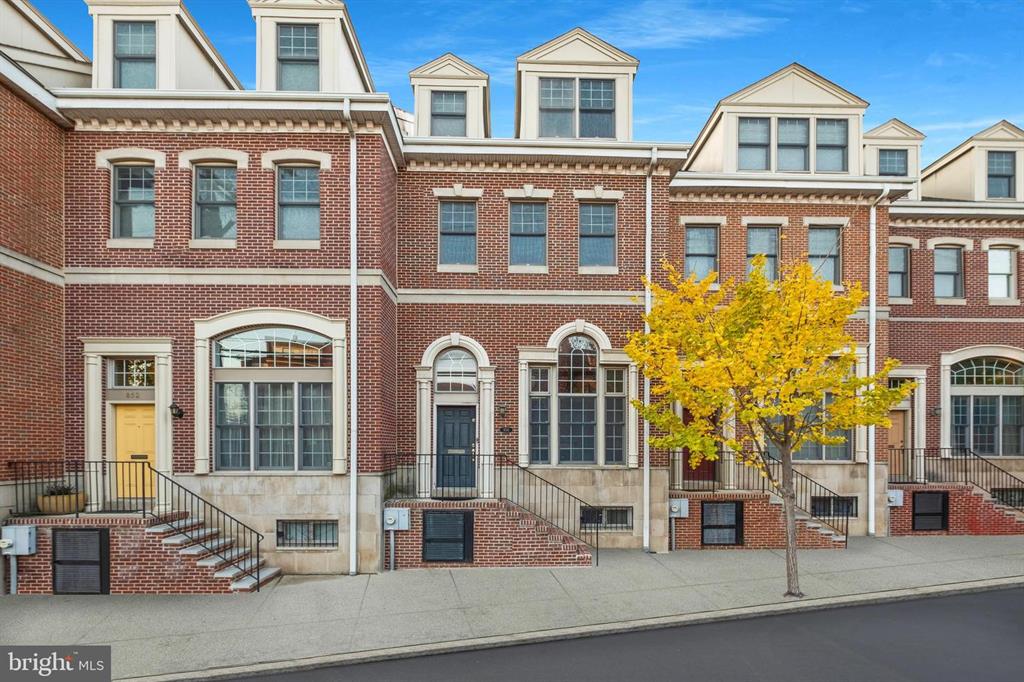If you’re considering selling your Philadelphia home soon, it may be a good idea to renovate your home. Not sure about that? Well, put yourself in a potential buyer’s shoes. They walk through the front door of your home, and what do they see? Would they be impressed with what they see? Or would they start making a to-do list of all the updates and repairs needed if they buy your home? Many buyers are looking for a move-in ready home, and if your home needs a little love and attention, you may not sell as quickly as you want.
But what if you don’t want to go through the added expense and are ready to sell your home now. Will that make your home less desirable? Will you lose money by not renovating your home first?
Many sellers ask these questions before putting their home on the market; the answer differs from each situation. Before selling, Let’s review the pros and cons of renovating your Philadelphia home.
Why Should You Renovate Your Home Before Selling It?
In the tough Philadelphia real estate market, fixing up your home before you sell it is a one-of-a-kind chance to catch the eye of serious buyers. It’s hard to say enough about how appealing a newly updated home is, especially in high-end areas where standards are very high. Spending money on careful upgrades can help sellers turn an average listing into a property that stands out. This is especially true in places where there is a lot of demand for high-end Philadelphia homes for sale. The way a home looks and the features it has can have a big effect on buyer interest.
Making smart improvements, like updating kitchens and bathrooms or making outdoor living areas better, can really help a property’s charm. Not only do these kinds of improvements reflect modern ways of living, but they also show potential buyers that the home has been well-kept and is up-to-date. Remodeling can successfully show off a property’s potential by making it look better and work better. This makes it easier for buyers to picture themselves living there.
In addition to aesthetic changes, upgrades that increase the efficiency and sustainability of a home can also be particularly enticing. More and more people, especially high-end buyers who care about both new technology and the environment, want features like eco-friendly materials, smart home technology, and tools that use less energy.
In the Philadelphia real estate market, sellers can make their homes stand out as a premium offering by carefully choosing improvements that match what buyers want right now. This strategic method not only makes the house look and work better, but it can also be very important for attracting the right people, which can lead to a more successful and satisfying sale.
How Much Are Renovations Going to Cost?
To figure out how to pay for home improvements before selling, you need to carefully look at both the costs and the possible benefits. It is important to know which improvements will not only make the house look better but also raise its worth enough to cover the cost of the improvements. It’s true that renovations can raise the price and bring in more offers, but the return on investment (ROI) is very different for each type of job.
For example, small changes to the outside of the house and kitchens often have a better ROI than bigger, more expensive improvements. For sellers in the Philadelphia market, it’s important to carefully plan and spend their money on updates that buyers find most useful. This could mean updating important parts of the house or adding popular features that meet the needs of people who want to buy a luxury home.
It’s important to work with a Philadelphia realtor who knows what high-end buyers are looking for and to get accurate cost quotes from experienced contractors. These experts can tell you which home improvements are most likely to pay off and which ones might need to be fixed up before they can be recouped. This collaborative method makes sure that sellers can make decisions based on data, maximizing their financial outlay to make the property more marketable and increase its sale price without going over budget or making updates that don’t meet the needs of the current market.
Will My Home Sell Faster If I Renovate It?
One great reason to fix up your house before putting it on the market is that the sale process might go faster. Homes that look like they are ready to move into and have a fresh, new look tend to get more attention, which speeds up the selling process. When there is a lot of competition, like in the Philadelphia real estate market, homes that meet buyers’ needs to move in right away stand out. Not only do people like these homes because they look nice, but they also want them because they are easy to live in and don’t take a lot of extra time, money, or work.
Properties that have been renovated also get more attention and interest when they are on the market. The time a property is on the market can be cut down by sellers who pay attention to what buyers want and add modern features through improvements. This is especially true for homes that have popular upgrades and stylish finishes that match modern styles and ways of life. The changes to the strategy could lead to more competitive offers, maybe from more than one person interested. This could speed up the sale process and maybe even make the terms better.
Also, the quick sale of a renovated home can be a huge relief for buyers who want to move on to the next part of their lives, whether that’s buying a new home or moving. When sellers sell a home quickly and in a way that meets market needs, they avoid long times of uncertainty and the hassles of keeping the home in show-ready shape over time. In the end, well-thought-out improvements can help the sale go more quickly and smoothly, meeting the needs and timelines of both the buyer and the seller.
Is There a Downside to Renovating Before Selling My Home?
When you start home improvements before you sell it, there are a lot of things that could go wrong. The biggest problems are problems you should have expected and rising costs. The draw of updating and modernizing can quickly turn into problems that go beyond the budgets and schedules that were set at the start. There are often problems that are hidden below the surface and are only found when renovations are done. These can range from structural deficiencies to outdated plumbing or electrical systems that require extensive, unforeseen repairs. These kinds of finds not only raise the price but can also cause big delays that make the selling process even harder.
Moreover, the variability of renovation expenses adds another layer of uncertainty. Quotes and initial estimates may only sometimes capture the full scope of the work needed, leading to budget overruns. This lack of financial certainty can be especially stressful for sellers who are counting on the makeover to make their home worth more on the market. The risk of investing more than the return justifies, or worse, encountering a scenario where the costs outweigh the benefits, is a tangible concern.
The time it takes to finish renovations can also be hard to guess because of things like contractors’ availability, delays in getting materials, and the difficulty of the job. These delays can be bad, especially in a market that moves quickly and where time is very important for taking advantage of buyer interest. The combination of these factors underscores the importance of careful planning and contingency budgeting, yet even the most meticulously laid plans can face unforeseen challenges, underlining the inherent risks of renovating before selling.
To Renovate or Not to Renovate? How to Choose the Right Option
Deciding on renovations before selling involves weighing numerous factors unique to your situation. Assess the existing state of your home, considering how it stands against the competition in the luxury Philadelphia market. It’s essential to reflect on whether the investment in upgrades will genuinely enhance the property’s appeal and market value to a level that justifies the costs. The financial aspect is crucial; evaluate if you have the resources for renovations without risking overcapitalization.
Understanding buyer expectations in the luxury segment is vital. Trends fluctuate, and what was desirable a year ago may not hold the same value today. Engage with a real estate professional familiar with luxury homes to discern which upgrades could make your property more attractive to potential buyers. This insight can guide your decision on whether to proceed with renovations or to market the home as-is, potentially appealing to those looking to customize their new residence.
Consider the timeline as well. Renovations can introduce delays, and in a swiftly changing market, timing can influence the success of a sale. Balance the potential benefits of a higher sale price and quicker transaction against the risks of unforeseen costs and project overruns.
The choice to renovate before selling is multifaceted, requiring a blend of market awareness, financial prudence, and strategic timing. Aim for decisions that not only elevate your property’s appeal but also align with your personal objectives and market realities, ensuring a smoother transition to your next endeavor.
If you plan to sell your Philadelphia home, Maxwell Realty can give you a hand. Contact our Philadelphia realtor today to get the ball rolling.

